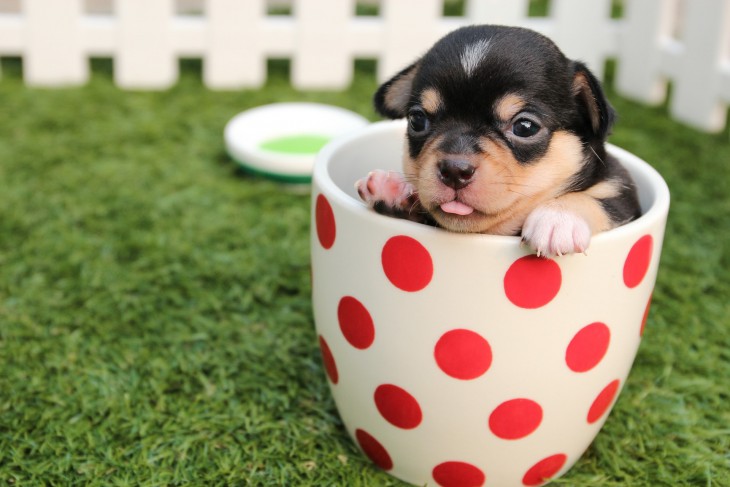For the first four to eight weeks of a puppy’s life the dam is in charge of caring for her new pup. In the event that something has happened to the mother, or that she has rejected her pup, you may have to step up to the pooch and act as its surrogate mother.
This means you will have to feed it, keep it warm, and help the puppy urinate and defecate. Whoa! That’s a heavy load. True. But it is not as hard as you think. Luckily, for you we prepared this guide to help you in bringing up puppy.
Important: Consult with your veterinarian as to how much your puppy should weigh at each stage of its development. By tracking its weight you will be able to ensure your puppy is eating the right amount of food. Plus, weight watching could help prevent obesity.
Feeding a Newborn Puppy – if you have to feed a newborn, you should consult with a veterinarian as to the proper way to bottle feed it. Without the proper technique, you might end up doing more harm than good. Do not feed a puppy cow’s milk. Instead, feed it a milk replacer specifically formulated for puppies.
Newborns need lots of warmth. At the newborn stage, a puppy needs to stay warm. A heating blanket with variable temperature settings or a warm water bottle wrapped in a towel should do the trick.
A Word About #1 and #2 – newborn puppies need a little coaxing when it comes to urinating and defecating. Usually, the dam does this with a few licks of her tongue. If this undesirable task falls on you, relax! You don’t have to follow in the dam’s footsteps. All you need to do is wet a soft towel in warm water and gently massage the puppy’s anal and urinary regions after feeding. This technique will help stimulate the puppy’s need to relieve itself. The good thing is that by week three, puppies should be able to excrete on their own.
Feeding Four-Week Old Puppies – at this stage in a dog’s life you can start making the transition from nursing to solid foods. Puppy kibbles soaked in water and milk replacer should be blended to the consistency of gruel. As the pup gets older, gradually decrease the amount of milk replacer.
Feeding Seven-to-Eight Week Old Puppies – by this time, a puppy should be able to eat dry foods only. You might want to introduce some probiotics at this stage to help in developing a puppy’s gastrointestinal health. Please consult with your veterinarian beforehand.
Puppy Vaccines – should begin at about six weeks of age. Speak with your veterinarian about which vaccines to give and at what age.
In summary, a puppy without its dam needs a lot of care especially when it comes to feedings. Newborns should be fed a milk replacer specifically made for dogs. At four weeks you can introduce dry kibbles into its diet. Start by mixing the kibbles with water and milk replacer. By seven weeks, the puppy should be able to eat dry foods without a problem.
Do you have a tip on what to feed and/or how to care for a puppy?
Let us know in the comments section.





